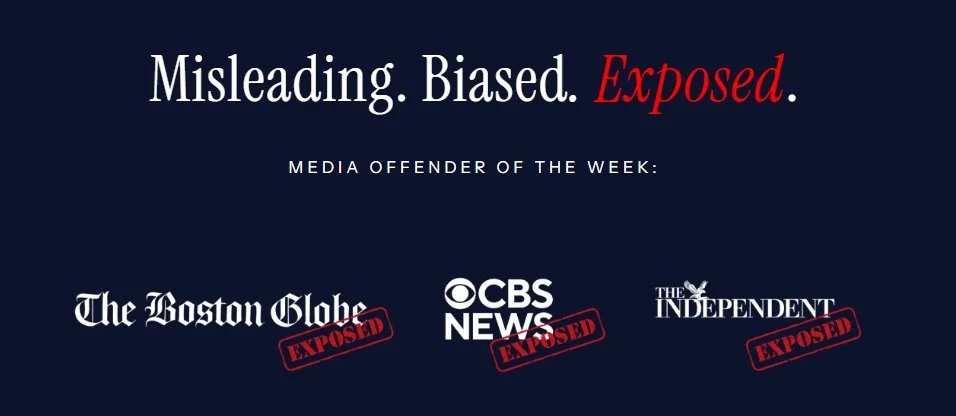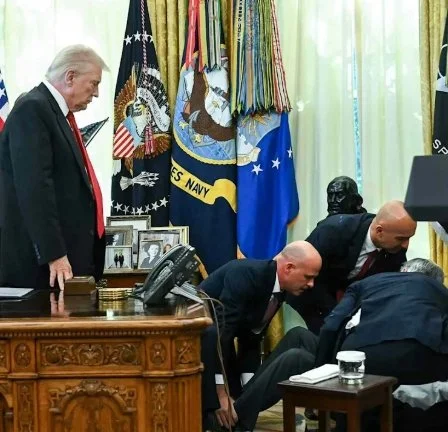The Erosion of Restraint: A Moral, Ethical, and Psychological Analysis of the 2025 U.S. Strike on a Venezuelan Vessel
On September 2, 2025, the United States carried out a military strike on a vessel in international waters near Venezuela, killing eleven individuals alleged to be affiliated with the Tren de Aragua (TdA) gang. The Trump administration, with Secretary of State Marco Rubio as a key advocate, justified the strike as an act of self-defense against a terrorist organization. As the legal report you shared highlights, the action rests on tenuous grounds under both international and domestic law, raising profound questions not just of legality but also of morality, ethics, and political psychology.
While the legal debate revolves around jus ad bellum (the right to use force), jus in bello (the laws governing force), and U.S. constitutional war powers, these frameworks alone cannot capture the deeper implications of the strike. To understand what this event reveals about Donald Trump and his administration, we must turn to moral philosophy, ethical reasoning, and the psychological dynamics of political leadership.
This essay will argue that the Venezuelan vessel strike reflects three overlapping themes: (1) a moral erosion of the value of human life in U.S. foreign policy, (2) an ethical normalization of military over law enforcement responses, and (3) a psychological strategy by Trump that draws on authoritarian signaling, fear-framing, and American exceptionalism. Together, these themes suggest that the strike is less about neutralizing imminent threats and more about consolidating political power, reshaping norms of legitimacy, and entrenching unilateral presidential authority.
TL;DR
- Core claim: The 2025 U.S. strike on a Venezuelan vessel reflects moral erosion, ethical overreach, and political-psychological power signaling.
- Ethics: Necessity, proportionality, and distinction collapsed—military force replaced law enforcement without exhausting non-lethal options.
- Morality: Human life and due process were devalued; terrorist labeling enabled “killable” categories and weakens democratic legitimacy.
- Psychology: Action fits an authoritarian, fear-framed strategy leveraging American exceptionalism to consolidate unilateral presidential power.
- Implications: Sets a dangerous precedent eroding checks and international norms—normalizing extraterritorial killing without imminent threat.
Ethical Dimensions: The Collapse of Distinction
The ethical analysis begins with the principle of distinction; the moral obligation to differentiate between combatants and civilians, between law enforcement and war. The legal interpretation makes clear that the eleven killed were not lawful combatants under international law: they were alleged traffickers (narcotics , possibly human), not individuals directly engaged in hostilities.
Ethical failure of necessity and proportionality
Ethically, the necessity principle demands that lethal force be the last resort. Yet the administration bypassed existing law enforcement frameworks: the U.S. Coast Guard, which has jurisdiction over maritime interdiction, operates under a graduated use-of-force model that prioritizes warnings, disabling fire, and capture. Instead, the Navy used destructive military force without exhausting non-lethal options. This ethical shortcut transforms a law enforcement challenge into an act of war.
Proportionality also collapses. Even if TdA posed some threat to U.S. interests, killing eleven individuals with military force appears grossly disproportionate to the alleged danger. Ethical proportionality requires weighing harm prevented against harm caused. No imminent threat of loss of American life was demonstrated; instead, lethal force was justified on the basis of potential narcotics flows; a far weaker moral claim.
The instrumentalization of human life
The strike suggests an ethical worldview in which human beings, especially non-Americans and alleged criminals are treated as instruments. This reflects what philosopher Michael Walzer calls “supreme emergency” reasoning, in which leaders suspend moral norms when framing threats as existential. Yet there was no such emergency here. The eleven individuals killed became expendable lives in service of political theater and deterrence, not immediate defense.
Moral Dimensions: The Erosion of Democratic Responsibility
Morality moves beyond ethics’ procedural questions to consider values, legitimacy, and the sanctity of life.
The sanctity of life versus political expedience
At its core, the strike challenges the moral principle that all human life possesses intrinsic value. By choosing military destruction over interdiction, the Trump administration implicitly communicated that the lives of foreign nationals accused of drug trafficking were worth less than the political symbolism of decisive action. This moral calculus reflects a troubling hierarchy: American lives first, adversaries’ lives disposable, and due process irrelevant.
Delegitimizing due process
Democratic states derive legitimacy not just from elections but from adherence to rule of law and due process. By killing rather than capturing, the administration foreclosed judicial accountability. This moral choice undermines the very foundation of democratic legitimacy. It echoes a long U.S. trend of drone strikes and targeted killings, where suspected militants are executed abroad without trial. Yet the Venezuelan case is even weaker, because those targeted were accused of criminal rather than terrorist violence.
The slippery precedent of labeling
Morally, the administration’s labeling of TdA as a “Foreign Terrorist Organization” performs a key function: it redefines smugglers as enemy combatants, making their killing more palatable. Political philosopher Giorgio Agamben calls this the creation of “bare life” meaning people excluded from the protections of law, reduced to killable bodies. Once labeled terrorists, TdA members are stripped of moral recognition, justifying their elimination. This precedent is morally corrosive: any criminal group could be reclassified as “terrorist” to legitimate future strikes.
Political Psychology: Trump’s Leadership Through Fear and Force
If ethics and morality explain what the strike did to norms, political psychology explains why Trump and his administration chose this path.
Authoritarian signaling and the politics of strength
Research in political psychology shows that authoritarian-leaning leaders often emphasize decisive, unilateral action to signal strength. Trump’s choice to employ military rather than law enforcement tools exemplifies what psychologists call dominance signaling: projecting toughness to both domestic and international audiences. In doing so, he consolidates his image as a leader unafraid to break rules to defend the nation.
This strategy resonates with his political base. Studies show that voters with high authoritarian predispositions respond positively to leaders who use aggressive tactics against out-groups, even if legality is questionable. The strike thus serves as both foreign policy and campaign rhetoric, reinforcing Trump’s brand of “America First” exceptionalism.
Fear framing and the construction of threats
The strike was framed as necessary to counter “imminent threats” from TdA, despite weak evidence of direct danger to American lives. Political psychology research (e.g., George Lakoff, Daniel Kahneman) demonstrates how fear framing heightens public receptivity to extraordinary measures. By labeling TdA as terrorists rather than criminals, Trump tapped into post-9/11 schemas that equate terrorism with existential threat. This framing shifts public evaluation from law enforcement proportionality to wartime emergency.
Out-group demonization and moral disengagement
Social psychologists Albert Bandura and Henri Tajfel emphasize that leaders often foster moral disengagement by portraying out-groups as dangerous, subhuman, or morally corrupt. Trump has long used this strategy domestically, portraying immigrants as “animals” or “invaders.” The Venezuelan strike extends the same logic internationally: TdA members are not seen as human beings with rights but as vermin to be exterminated. This psychological mechanism makes otherwise troubling actions acceptable to supporters.
American exceptionalism and normalization of unilateralism
Finally, the strike reflects a deeply embedded psychological narrative: U.S. exceptionalism. Political psychologist Robert Jervis observed that American leaders often see international law as a constraint on others, not themselves. Trump has amplified this tradition, openly hostile to international institutions like the ICC. The Venezuelan strike reinforces the belief that U.S. presidents can act unilaterally, outside of law, because America defines the rules. Psychologically, this fosters a dangerous normalization of impunity.
Historical Context: Continuity and Rupture
To understand the moral and psychological meaning of this strike, we must situate it within U.S. history.
Drone strikes under Bush and Obama: Both administrations justified targeted killings of suspected terrorists abroad. Yet those cases involved groups linked to 9/11 or active hostilities against U.S. troops. Trump’s Venezuelan strike expands this precedent to drug traffickers, breaking the link to armed conflict.
The War on Drugs: Reagan and Nixon framed drugs as existential threats, militarizing enforcement. The Venezuelan strike echoes this logic, but with an international twist: treating foreign traffickers as terrorists.
The “Unitary Executive” theory: Since the 1980s, conservative legal scholars have expanded presidential power under Article II. Trump embodies this trend, bypassing Congress to act unilaterally. The Venezuelan strike thus fits a broader arc of executive aggrandizement.
Empirically, then, the strike is both continuity (militarization of law enforcement, unilateralism) and rupture (extension of lethal force to non-combatant criminals in international waters).
Implications for Democracy and Global Norms
The moral, ethical, and psychological dimensions converge in their implications:
For U.S. democracy: The strike accelerates the erosion of congressional war powers. If left unchecked, presidents will increasingly wield unilateral authority to kill abroad without oversight. This undermines democratic checks and balances.
For international norms: By killing suspected criminals in international waters, the U.S. erodes the distinction between war and policing. Other states may follow suit, justifying extraterritorial killings against their own labeled enemies. This weakens the UN Charter’s prohibition on force.
For moral culture: Repeated resort to lethal force against non-combatants risks normalizing a culture of disposability. Foreign lives become political tools, stripped of dignity, reinforcing a worldview where might defines right.
Simply Put
The 2025 U.S. strike on a Venezuelan vessel is legally tenuous, but its deeper meaning lies in the moral, ethical, and psychological terrain it reveals. Ethically, it collapses the principles of necessity, proportionality, and distinction, replacing law enforcement with war. Morally, it devalues human life, delegitimizes due process, and normalizes the creation of killable categories through labeling. Psychologically, it exemplifies Trump’s leadership style: authoritarian signaling, fear framing, out-group demonization, and American exceptionalism.
Taken together, these dimensions suggest that the strike was less about neutralizing threats and more about consolidating political authority, projecting strength, and reshaping norms of legitimacy. It reveals an administration willing to stretch or discard legal and moral boundaries for political gain, reinforcing patterns of unilateralism and impunity.
The legacy of this strike will not be the elimination of eleven alleged gang members. It will be the precedent it sets: that the U.S. president can kill abroad without imminent threat, due process, or congressional approval, and that such actions can be justified not by necessity but by narrative. This precedent carries profound risks, not only for U.S. democracy but for the moral fabric of international order itself.
For the people of the United States ask yourselves: Are you comfortable with your leaders normalizing killing as a tool of politics, and what does that say about you if you accept it?
References
Agamben, G. (2005). State of Exception. University of Chicago Press.
Kahneman, D. (2011). Thinking, Fast and Slow. Farrar, Straus and Giroux.
Lakoff, G. (2004). Don’t Think of an Elephant! Chelsea Green Publishing.
Zimbardo, P. G. (2007). The Lucifer Effect: Understanding How Good People Turn Evil. Random House.










